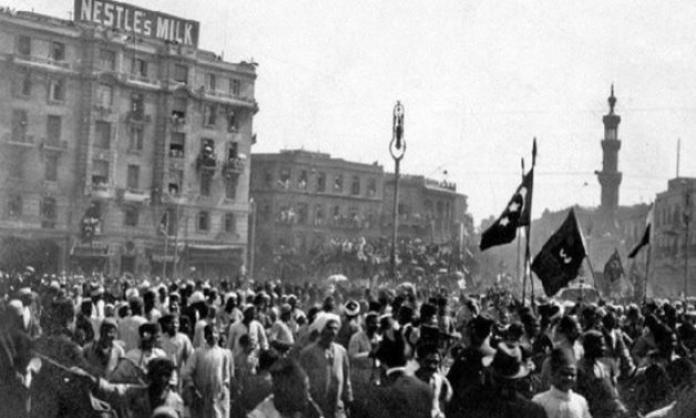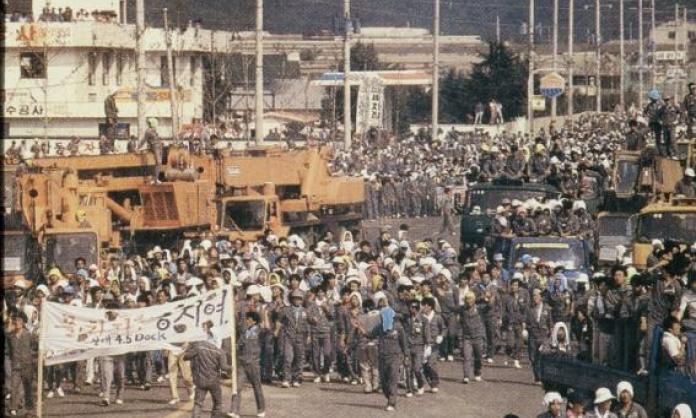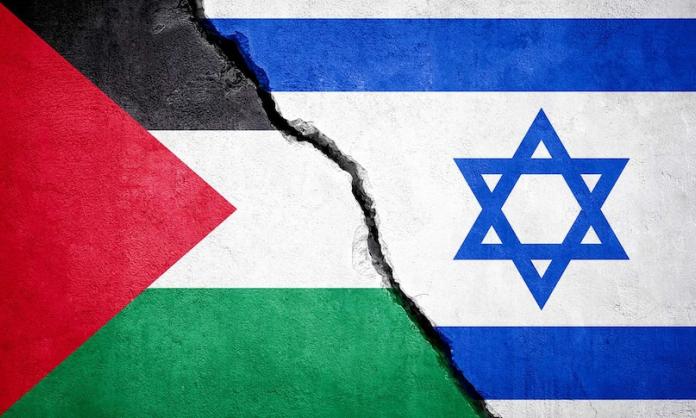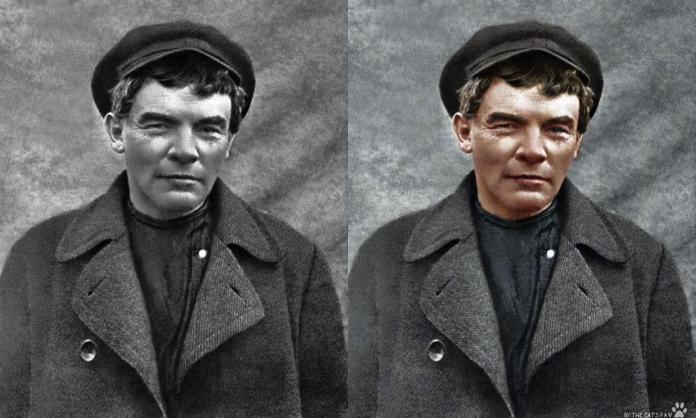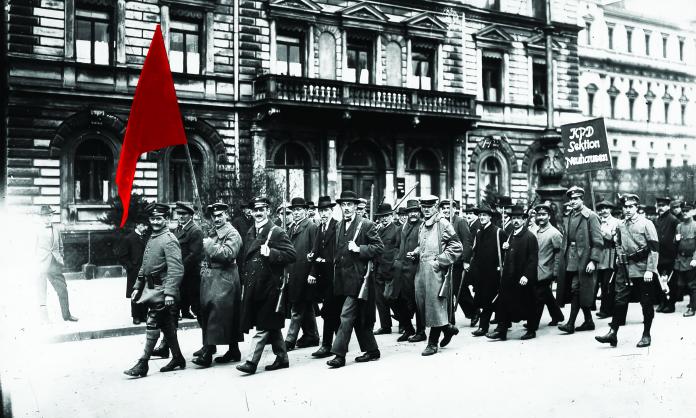Karl Marx once said of the past that it “weighs like a nightmare on the brains of the living”. Vladimir Putin has made clear that he, for one, is haunted by the legacy of Vladimir Lenin and the workers’ revolution of 1917 that tore down the tsarist Russian Empire.
Speaking just days before ordering his onslaught on Ukraine, Putin said that “modern Ukraine was entirely created by Russia, or to be more precise, Bolshevik, communist Russia”. Lenin was Ukraine’s “creator and architect”, he said—an act which Putin blames for dividing up the “indivisible” Russian state. Putin is right to be haunted by Lenin. The revolutionary politics of the Bolshevik Party, which he led, remain a lodestar for all genuine fighters for freedom and democracy for the working class today.
The Russian revolution of 1917 was a high-water mark for international working-class struggle that saw the creation of the world’s first workers’ state under the control of democratic workplace-based councils—the soviets. While it only retained this character for a few short years before international isolation saw the undermining of workers’ democracy by bureaucratic tyranny under Joseph Stalin, the democratic achievements of that time echo even one hundred years later.
One of these long-lasting achievements was the establishment of independent states all through the territory of the old Russian Empire—created in the storm and stress of the revolution and resultant civil war. These included not just Ukraine, but the states of central Asia like Kazakhstan and Uzbekistan, in the Caucasus and all across Eastern Europe with the establishment of Poland, Finland and the Baltic states.
The establishment of these states was not a result of Lenin alone, as Putin’s “great man” version of history has it. Rather it reflected the democratic struggle of nationalities that the Russian Empire had long oppressed and forcibly integrated into the Russian state. Prior to 1917, this oppression ranged from apartheid-like laws directed against the millions of Jewish people who lived within Russian territory, to a horrifically violent form of settler colonialism against the Kazakhs, Kyrgyz and Uzbeks, to the forced imposition of the Russian language in schools and in government in territories like Ukraine (so-called “russification”).
Lenin and the Bolsheviks related to this democratic struggle by arguing that only a workers’ revolution could smash the oppressive Empire which kept workers in economic and political slavery, and that socialists should seek to unify the struggles of all of the oppressed under the workers’ banner. To achieve such unification Russian workers needed to fight, as Lenin put it, against “every manifestation of tyranny and oppression, no matter where it appears, no matter what stratum or class of the people it affects”, and be “able to generalise all these manifestations and produce a single picture of police violence and capitalist exploitation”. This meant supporting oppressed nationalities in the Russian Empire in their fight for self-determination.
After the working-class insurrection of October 1917 in central Russia, one of the first declarations of the new soviet government was on the status of oppressed nations like Ukraine. The soviets proclaimed, “the abolition of any and all national and national-religious privileges and disabilities” and “the right of the peoples of Russia to free self-determination, even to the point of separation and the formation of an independent state”.
Conservatives—in line with their understanding of the mass, participatory, and democratic Russian revolution as an authoritarian conspiracy—have frequently accused the Bolsheviks of pure cynicism regarding such declarations. In an article reporting on Putin’s recent comments about Lenin and Ukraine, for example, Mark Katz in The National Interest argued that Lenin and Putin’s views on the question amounted to the same thing: wanting to “to restore control over lost parts of the Russian Empire”. Lenin, in Katz’s view, was simply more realistic than Putin—he knew “a more accommodative approach toward Ukrainian nationalism would better serve Russia’s long-term interests”.
Serious studies, such as that undertaken by Jeremy Smith in 1996, have given proper credit to the consistency of the revolutionary democratic aspirations of the Bolsheviks, and their achievements after 1917. Far from cynically wielding calls for self-determination as a fig leaf for a renewed Russian imperialism, the soviet government actively championed the rights of the nationalities previously oppressed by Russia in order to win them over to the liberatory potential of a society run by and for workers.
This involved efforts to promote autonomy for oppressed groups to make soviet power genuinely a “people’s power”. The new soviet government recognised such autonomy not only when petitioned, but proactively. Between 1918 and 1923, thirteen autonomous republics were established—republics which continue to exist to this day in the territory of modern Russia.
This commitment to self-determination was most significantly expressed in the promotion of “indigenization” rather than the imperial “russification” policy that existed up to 1917. This meant the promotion of, and education in, languages like Ukrainian, Belarusian, Kazakh and Azeri in their respective states. The promotion of native languages cannot be separated from the massive educational effort which the soviet government undertook after the revolution which saw literacy more than double in ten years.
Putin’s attack on the democratic achievements of the October Revolution is not just the demented ravings of a mad dictator. Rather it reflects a calculated desire to strengthen the reach and power of the modern Russian state, which Putin sees as heir to the Empire of the Tsars. Just as under the Tsars, a society of such immense inequality, injustice and exploitation as Russia today can only be maintained by systematic oppression. This means imperialism abroad and repression at home.
For this reason Russia in 2018 passed a new law banning the autonomous republics from instructing children in their native language for more than two hours a week, while also making such instruction optional. This was followed up in 2020 by a referendum constitutionally recognising Russian “as the language of the state-forming nationality”, and at the same time banning marriage equality and strengthening the powers of the presidency which Putin holds.
In these actions and in Putin’s invasion of Ukraine we see clearly that the interests of the exploitative “oligarchs”—the capitalists—that rule Russia today are a mirror of the interests of the Tsar and the feudal aristocrats that stood behind him. And like the revolt against the Tsar during World War I, we see today that many Russians have risen up to oppose imperialism. The challenge for this anti-war movement is to take seriously the lessons of history which Putin is distorting.
Lenin and the Bolsheviks understood firstly that the working class was the social force which in modern capitalist society had the social power to overthrow capitalism and an interest in bringing about a society of genuine democracy for all the oppressed and exploited. In order to do so back then, the Bolsheviks had to make common cause with all the other groups oppressed by the Russian state—peasants, religious minorities as well as nationally oppressed groups—to unite all these struggles into one unconquerable torrent to wash away the tyrants.
If the anti-war movement in Russia today and the brave Ukrainian resistance movement can forge a common front against imperialism based on their shared class interests against the Russian state, then Putin will no longer have nightmares about a Bolshevik past, but a Bolshevik present, too.





